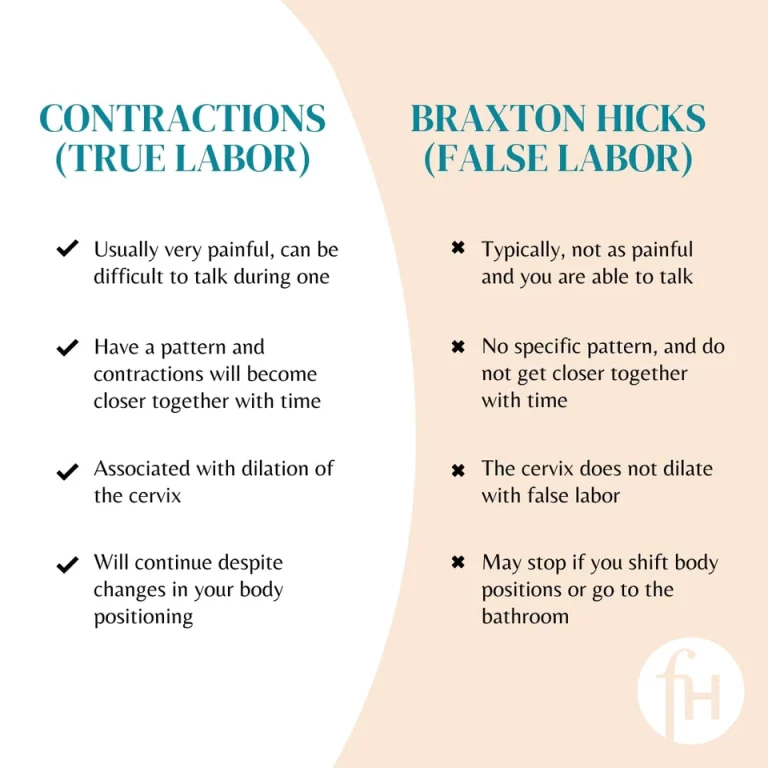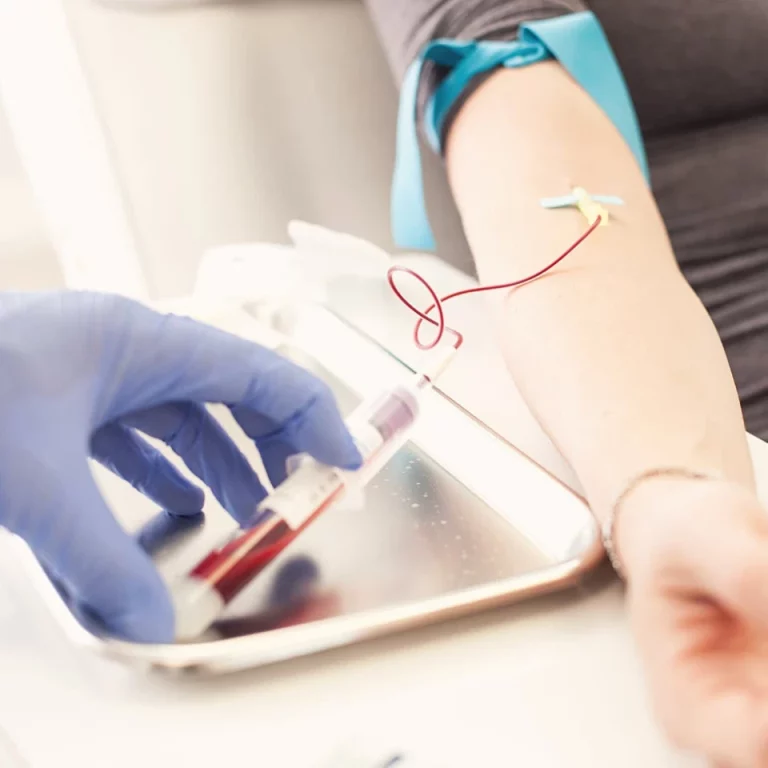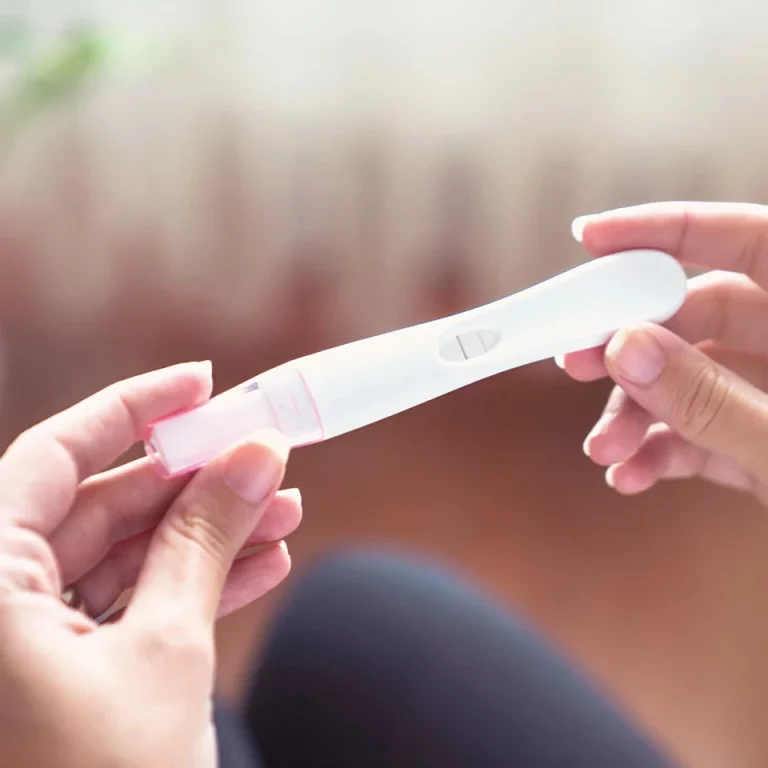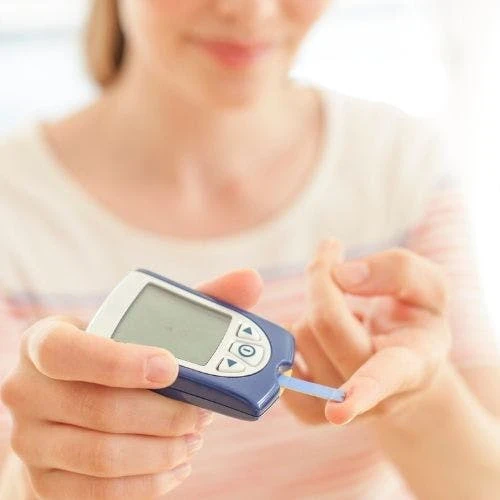What Does It Mean When One Pregnancy Test Is Positive And The Other Is Negative?
At-home pregnancy tests have become essential tools for women trying to determine if they’re pregnant. They typically work by detecting the presence of human chorionic gonadotropin (hCG), a hormone produced by the placenta after an embryo has implanted into the uterus. However, sometimes these tests can have conflicting results, with one positive test result and one negative test result.
What Does It Mean When One Pregnancy Test Is Positive And The Other Is Negative?
Over the counter pregnancy tests have a very high sensitivity. This means if you have one positive result, and one negative result, it is quite likely that the positive result is the correct one.
The negative result may simply mean that the test is not sensitive enough to pick up the level of hCG in your urine yet. In most cases, this is likely the case. There are other causes of differing results that are discussed below.
Reasons For False Results In At Home Pregnancy Tests
There are several possible explanations for these conflicting results. One reason may be the difference in sensitivity levels of the tests being used. Some pregnancy tests can detect lower levels of hCG and yield a positive result even with early-stage pregnancies, while others may require a higher hormone concentration to show a positive outcome. Another reason could be the time of day the test was taken, as hCG levels tend to be higher in the morning. Timing also plays a role; testing too early in the pregnancy may result in a false negative as hCG levels may not be detectable yet.
It is crucial for an individual experiencing this discrepancy to seek a healthcare professional’s input to confirm and understand their pregnancy status accurately. Sometimes, false negatives can happen when a woman is at a later stage in her pregnancy, leading to the phenomenon known as the “hook-like effect.” In these cases, hCG levels are so high that they interfere with the pregnancy test’s ability to detect them. Consulting with a healthcare provider enables a woman to receive the appropriate guidance and information during this period.
How To Get The Most Accurate Results For HCG Hormone Detection
The most accurate way to figure out if you are pregnant is a blood pregnancy test. This is much more definitive than a urine pregnancy test. However, it is important to note that when there is enough HCG in the urine, a home urine pregnancy test is usually correct. If there is a negative pregnancy test result on a home urine test, it may be that you just need to repeat the test a few days later to see it turn positive.
How Pregnancy Tests Work
Pregnancy tests detect the presence of the hormone human chorionic gonadotropin (hCG) in a woman’s body, which is produced when a fertilized egg implants in the uterus. hCG levels increase rapidly during early pregnancy, making it a reliable indicator for pregnancy detection. However, various factors can affect the test’s accuracy, leading to false-positive or false-negative results.
Types Of Pregnancy Tests
There are two main types of pregnancy tests: urine tests and blood tests.
- Urine tests are the most common and can be done at home or in a healthcare provider’s office. These tests typically involve using a test strip or stick, which is exposed to a woman’s urine sample. The strip then reacts with any hCG present, displaying a positive or negative result.
- Blood tests are more accurate and can detect pregnancy earlier than urine tests. They are performed in a healthcare provider’s office or laboratory and involve analyzing a blood sample for hCG levels. There are two types of blood tests – qualitative hCG test, which gives a simple yes or no answer to whether you are pregnant and quantitative hCG test, which measures the exact amount of hCG in your blood. If you are pregnant your doctor will monitor the rise in hCG levels to ensure that the pregnancy is progressing normally. A drop in hCG levels could signify an ectopic pregnancy that needs immediate medical attention.
False Negatives And False Positives In The At-Home Test
There are many factors can affect the accuracy of pregnancy test results, leading to false positives or false negatives. A false positive means that the test reads positive, but the patient is not pregnant. This is rare because at-home pregnancy tests have high sensitivities. A false negative means that the test is negative but the patient is actually pregnant. If you have a negative test and you have had unprotected sex, it is a good idea to retest a few days later. If you want the best results, you can see your doctor for a blood test.
Causes Of False Positives
There are several factors that can lead to a false positive pregnancy test result. Some common causes include:
- Chemical pregnancy: This occurs when a fertilized egg does not implant successfully in the uterus, leading to termination of the pregnancy. A positive pregnancy test can be detected initially, but the hormone levels will drop shortly after.
- Evaporation lines: An evaporation line happens when the test is not read within the recommended time frame. It is important to follow the test instructions to avoid misinterpretation. If you come back to a test several hours later, the line may have evaporated.
- Medication interference: Certain medications, such as fertility drugs, can elevate the hormone levels and cause a false positive result. It is always essential to check with your doctor if you are taking any medications that could interfere.
- Improper testing methods: Not following the test instructions or using a test past its expiration date can lead to inaccurate results.
Causes of False Negatives
False negative pregnancy test results can also occur due to various factors, including:
- Testing too early: Taking a pregnancy test too soon after conception might not detect the pregnancy hormone hCG, leading to a false negative result. It is recommended to wait until the first day of a missed period to yield a more accurate result.
- Diluted urine: If a pregnancy test is conducted with diluted urine, it can diminish the concentration of hCG, producing a false negative result. It is best to take the test first thing in the morning when the urine is most concentrated.
- Ectopic pregnancy: In this rare case, the fertilized egg implants outside the uterus, leading to a hormonal imbalance that can result in a false negative test.
It is important to remember that while false positives and negatives can occur, most pregnancy tests are reliable when performed correctly. If you have any lingering doubts or questions, consulting with a healthcare professional is always the best course of action.
Related: Round Ligament Pain In Pregnancy
Factors Affecting At Home Pregnancy Test Results
- Timing: Testing too early in pregnancy can result in false negatives due to insufficient hCG levels. It’s generally recommended to wait until after a missed period to test for accurate results.
- Dilution of urine: Drinking large amounts of fluid before taking a urine test can dilute hCG levels, leading to false negatives. It’s best to take the test using the first-morning urine when hCG levels are most concentrated.
- Expired or defective tests: Using an expired or damaged pregnancy test can result in inaccurate results.
- Interference with medication: Some medications, such as fertility treatments containing hCG, can cause false positives.
- Hook-like effect: In rare cases, very high hCG levels can cause a false-negative result in urine pregnancy tests, known as the “hook-like effect.”
It’s essential to follow the test instructions carefully and consult a healthcare provider if you have any concerns about the results, especially when one pregnancy test is positive and the other is negative. They can provide further guidance, additional testing, or explanations for any discrepancies.
Possible Causes For One Pregnancy Test Being Positive And The Other Negative
There could be several reasons for mixed pregnancy test results, leading to one test being positive and the other negative. Some possible factors include:
- Differences in sensitivity: Pregnancy tests measure the levels of human chorionic gonadotropin (hCG) in the urine. Different tests may have varying levels of sensitivity, causing discrepancies in the results.
- Variations in hCG levels: hCG levels can change throughout the day, affecting the accuracy of a pregnancy test. Timing plays a crucial role, as testing too early or during the course of the day could result in a false negative.
- Chemical pregnancy: A chemical pregnancy occurs when a fertilized egg does not implant itself properly in the uterus. This may lead to fluctuating hCG levels that cause mixed test results.
- Expired or faulty tests: Using an expired or damaged pregnancy test can yield incorrect results.
Confirming Pregnancy With A Blood Test
If you have received mixed results from home pregnancy tests, the most reliable method for confirming a pregnancy is through a blood test. Blood tests can detect hCG levels with higher accuracy and at earlier stages of pregnancy than urine tests. There are two types of blood tests:
- Qualitative hCG test: This test provides a simple yes or no answer to whether hCG is present in the blood.
- Quantitative hCG test: Also known as a beta hCG test, this test measures the exact amount of hCG present in the blood.
It is very important to consult a healthcare professional to arrange a blood test for a more accurate determination of pregnancy. If yo uare pregnant you will want to be sure that you are taking prenatal vitamins and appropriate steps to ensure a healthy pregnancy.
The Role Of HCG Levels
Human Chorionic Gonadotropin (HCG) is a hormone produced by the placenta after implantation of a fertilized egg. The presence of HCG in the blood or urine indicates a possible pregnancy. HCG levels rise rapidly during early pregnancy, doubling approximately every 48 to 72 hours, and then decrease as the pregnancy progresses. The HCG levels’ variation might contribute to different pregnancy test outcomes.
A false negative or positive result may occur when the HCG levels are too low or too high for the pregnancy test to detect. A positive result on one test and a negative result on another could result from issues like a very early pregnancy, an ectopic pregnancy, or a chemical pregnancy. It is crucial to wait a few days and take another test or consult a healthcare provider.
Best Time To Take A Pregnancy Test
The most accurate time to take a pregnancy test is after a missed period. However, some sensitive tests may detect HCG levels before a missed period, but those results could be less reliable.
Timing is crucial when taking a pregnancy test. Here are some tips for the best time to take a test:
- First Morning Urine: HCG concentration is highest in the first morning urine, so using it for testing increases the chances of obtaining accurate results.
- After a Missed Period: Waiting for a missed period or at least a few days after it is expected maximizes the test’s accuracy.
- If Testing Early: If you opt to test before your missed period, use a highly sensitive test, and remember that the result might be less reliable.
Understanding the importance of timing in pregnancy tests helps ensure accurate results and proper next steps. Regardless of the test results, it’s essential to consult with your healthcare provider to confirm the pregnancy and discuss appropriate care or to understand the reasons for inconsistent results.
Conflicting Pregnancy Test Results: Summary
Many women rely on at home pregnancy tests to confirm their pregnancy status. In some situations, patients might be left confused when one test shows a positive result, and the other is negative. This contradiction could be caused by various factors and understanding them is crucial for women during this often-stressful time. It is important to note that due to the high sensitivity of at home pregnancy urine tests, the positive test is likely the correct one, but not always.
This conflicting outcome can be attributed to several factors. One possible reason is the difference in sensitivity levels between the tests, as some tests can detect lower levels of human chorionic gonadotropin (hCG) than others. Another cause could be the time of testing, as hCG levels rise during pregnancy, and a test taken too early might not accurately detect the hormone.
It is essential to consider the possibility of a false-positive or false-negative result. False positives can occur due to specific medications, medical conditions, or testing errors. On the other hand, false negatives can result from improper testing or the hook-like effect in some cases, where high concentrations of hCG potentially interfere with accurate readings.
The best idea is to either ask your doctor for a blood test,or to wait a few days and retake the test. During these days you should take appropriate pregnancy precautions like taking a prenatal vitamin.
We discuss products we think are useful to people. If you buy something through our links, we may earn a commission. Remember to check with your personal physician to see if a product recommended is right for you.








